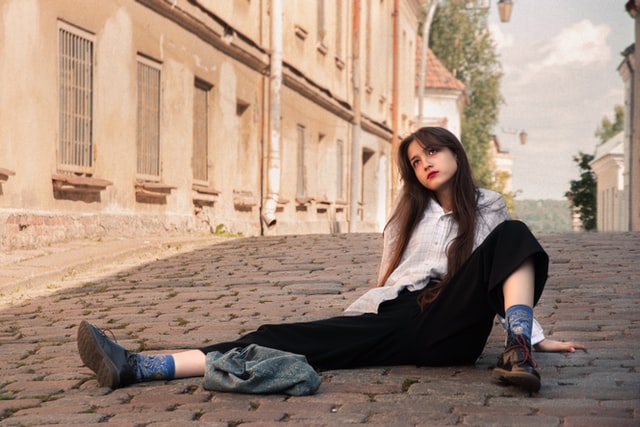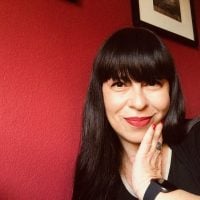I don’t remember if it was on a Wednesday or a Thursday, but I will never forget the day I stopped trusting myself and began looking for external approval and validation.
I had just turned nine when I excitedly announced my life’s dream to my parents: I wanted to discover the “cure for human suffering” and then write all about it to share it with the rest of the world.
But instead of enthusiasm, my parents met my excitement with skepticism and a dose of reality. They firmly told me that writing is a hobby, something I could enjoy in my free time after I became a scientist, which was what “someone of my intelligence” ought to do.
Like any good Greek girl, although I was armed with fierce Spartan genes and the promethean light of my brilliant ancestors, I obeyed my parents, stashed away my dream, and embarked on the path my parents had chosen for me.
It’s interesting how the most defining moments of our lives can appear so minute and insignificant, and although they take place below the realm of our awareness, they sculpt the inner fiber of our being—forming the blueprint of how we show up in life and for ourselves.
I remember making a deal with myself that day: “We’ll do what they want first, and then we can pick up where we left off.”
Things are not always what they seem.
If you were to judge my book by its cover, you’d probably think I was fearless, determined, and a force to be reckoned with. I looked pretty good on the outside. When I was just 17, I got a university scholarship and moved to England from Greece to study toxicology.
I developed drugs for cancer in the laboratory for my postgraduate research.
Then I moved another 6,000 miles to the West Coast of the United States and built a successful 20-year career in the pharmaceutical industry, while meeting and marrying the person who I thought was the one, becoming a mother, buying a house and nice car, and building financial security. One by one, I checked off all the items I was told I needed to acquire to be happy.
But no one could have guessed my internal struggle with my self-worth—how painful abandoning myself was, how debilitating it was to live my life being my worst enemy, instead of being my best friend.
I lived with extreme levels of stress and anxiety 24/7. I had a hard time sleeping, my stomach was tied in knots constantly, and my perfectionist and inner critic tormented me to no end.
I remember while so many people looked up to me for having the guts to move to foreign countries and accomplish all that I did, I felt like an imposter.
I remember sitting in a beautiful lecture theater in a red, brick building of my esteemed university, built in 1927, feeling like a complete fraud, chuckling to myself and thinking: “I fooled them into believing that I was good enough for this.” To tell you the truth, I never actually believed that I would be able to earn a degree.
And I beat myself up constantly.
Being hard on myself was my motivational strategy. When my body and mind complained about my brutal, drill sergeant tactics, when I could not concentrate and experienced brain fog and exhaustion, I told them to shut up, and I worked harder to pull myself back up to tip-top levels of performance.
I had several wake-up calls along the way—small moments of enlightenment that showed me that I was on the wrong path.
I was a young adult when I read Paulo Coelho’s The Alchemist, which shook me to my core.
I could totally relate with the author, who also quieted his own dream of becoming a writer until he lost everything by a twist of fate. And I could relate to Santiago, the book’s protagonist, who took such a long way around in search of his hidden treasure, which was “right here” all along.
At the time, I could not explain what I felt reading that book, but I’m guessing, like millions of readers around the world, it lit up a new kind of fire in me.
Coelho’s book gave me a glimpse of what was possible, if only I could come back home and befriend all my cool parts and all my annoying parts, like my paralysis by analysis tendencies or my Mediterranean temperament that often led me to put my foot in my mouth and do things I would later regret.
But when I finished reading The Alchemist, I humbly returned to running in circles on my little hamster wheel, and every award, every accomplishment, and every trophy along the way took me further and further away from who I truly was.
The way back home.
Paradoxically, just like Coelho, it seemed that the whole universe conspired to help me find my way home in the most unorthodox way.
At the peak of my outward success—accomplished, successful, financially set—I burnt out and suffered a severe spinal injury as a result.
Although this devastating diagnosis took everything away from me—my physical strength, my financial security, and a career I had worked so hard for—it also became the most profound catalyst for me to find my way back home.
Confronting this severe injury helped me break down so many illusions and finally see the truth.
The biggest truth I saw was that external things do not have the power to make me happy, and that the true, noble power of embracing and honoring who I truly am, befriending myself and seeing my worthiness, not despite my imperfections but because of them, is truly the key to happiness.
The deconstruction of my false sense of self, my imposter self, ensued, and everything began changing. I opened my mind to learn new skills, new philosophies, and new ways of being.
I learned that the process of loving and befriending our true self is beautifully supported and accentuated by the practice of maitri: the practice of developing pure, untainted love for ourselves in order to dissolve the perceived separateness with our beautiful, true nature within and with each other.
One by one, I let go of all the things that alienated me from my true self, from love and nonjudgmental compassion. I began to slowly lean in, getting to know, honor, and love the real me.
I wish I could tell you that there’s a magic pill that can exterminate the imprints of our past and speed up our way back home. But this journey can be messy, long, and tumultuous.
It’s not that easy to demolish all the labels that we have chosen to reward ourselves with that define our identity and worthiness. But what I can tell you is that it is the most beautiful journey, and it almost feels like falling in love.
You know how that feels, when you’re on cloud nine and nothing seems to phase you for too long. You have a magical ability to let things roll off your back, and no matter what comes up on your path, you feel an euphoric sense of ease, a magical safety net, that makes you believe that everything will be okay in the end.
That’s exactly what living life as my own best friend feels like.
Instead of clinging and relying on my lover to give me that beautiful inner sense of security, I’m learning to become the ultimate source of safety, support, and approval for my own self.
I’m growing to like and love myself, not just when I successfully develop drugs for cancer, but also when I struggle with my inner critic—writing and rewriting this article, editing, counting words, deleting, and changing it until it’s good enough.
I’ve learned to be at peace with the beauty of the vibrant California rays of sunshine during my morning walks as well as with my anger, frustration, or self-doubt that creeps up every time I take a small step outside of my comfort zone, gently asking myself: How can I be with my anger? How can I support myself through this feeling?
And suddenly, one breath, one mindfulness practice, one thought, and one day at a time, everything has changed.
I find that the newly found compassion I have learned to extend to myself has made me less judgmental toward others. Even when someone hurts me, I look at them with compassion, and I have no fear of setting boundaries and letting go of who or what is not aligned with me being the best version of myself.
I show up differently in my relationships. I no longer feel tormented by being attached to the outcome. I’m just grateful for what each experience and each person is here to bring me, right here and right now in this moment.
I have discovered that changing my mind to view every experience, every person, and every misstep along the way as stepping stones for my way back home is a beautiful way of relating to life. Knowing that I’m here by my side every step of the way makes me so much more courageous, and able to live life effortlessly and lovingly, to expand my container and let me be me—the real me and not who I was told I should be.
And that is beyond what any nine-year-old Greek girl’s wildest dreams could ever be.
~












Read 27 comments and reply